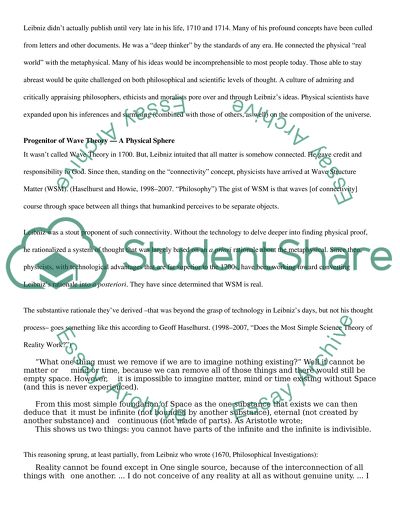Cite this document
(“Wilhelm Leibniz's Philosophical Writings Essay Example | Topics and Well Written Essays - 1500 words”, n.d.)
Retrieved from https://studentshare.org/miscellaneous/1534704-wilhelm-leibnizs-philosophical-writings
Retrieved from https://studentshare.org/miscellaneous/1534704-wilhelm-leibnizs-philosophical-writings
(Wilhelm Leibniz'S Philosophical Writings Essay Example | Topics and Well Written Essays - 1500 Words)
https://studentshare.org/miscellaneous/1534704-wilhelm-leibnizs-philosophical-writings.
https://studentshare.org/miscellaneous/1534704-wilhelm-leibnizs-philosophical-writings.
“Wilhelm Leibniz'S Philosophical Writings Essay Example | Topics and Well Written Essays - 1500 Words”, n.d. https://studentshare.org/miscellaneous/1534704-wilhelm-leibnizs-philosophical-writings.


